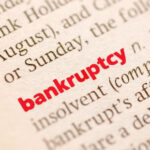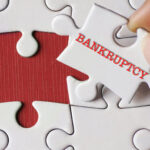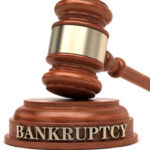Tag Archives: Miami Bankruptcy Lawyer

Florida Clarifies Rights of Mortgage Holders in Bankruptcy
Although filing for Chapter 7 bankruptcy can eliminate most of your unsecured debts, it does not get you off the hook for any debts secured by property, such as your home mortgage. While filing for bankruptcy can delay a foreclosure, it cannot ultimately prevent the bank from taking your house if you are unable… Read More »

New Chapter 13 Bankruptcy Rules In Effect
Bankruptcy is a complicated process. Many Florida residents think they can manage a Chapter 13 bankruptcy on their own. But there are a number of rules and forms involved, and if a debtor is not careful, they can sabotage their case right out of the gate. How New Amendments Help Creditors The Supreme Court… Read More »

Do I Still Have to Pay Alimony If I File for Bankruptcy?
In filing for Chapter 7 or Chapter 13 bankruptcy, you need to be mindful that certain categories of debt cannot be discharged. For example, if you are divorced and the court ordered you to pay spousal or child support, you cannot escape these obligations through the bankruptcy courts. To the contrary, the federal bankruptcy… Read More »

Do I Need to Disclose Pending Lawsuits on My Bankruptcy Petition?
In a Chapter 7 bankruptcy case, it is critical to disclose all of your assets to the court. This includes any potential legal claims you may have against other parties. For example, if you were in a car accident and sued the other driver for negligence prior to your bankruptcy filing, your personal injury… Read More »

What Happens If I Omit a Creditor from My Chapter 13 Bankruptcy Petition?
In any kind of bankruptcy case, it is critical to list all of your known debts on the appropriate schedules accompanying your Chapter 7 or Chapter 13 petition. As a matter of law, your creditors have the right to be notified of your bankruptcy case and to present a claim. If you omit a… Read More »

How Does Filing For Chapter 13 Affect a Foreclosure Proceeding Against Me?
Many Miami-area residents fall behind on their mortgage payments. If you are in this situation and are now facing foreclosure, filing for Chapter 13 bankruptcy may offer you a chance to keep your house. When you file for bankruptcy, the court issues an “automatic stay,” which prevents your creditors–including your mortgage lender–from taking any… Read More »

What Happens If I Convert a Chapter 13 Bankruptcy to Chapter 7?
In a Chapter 13 bankruptcy, a debtor submits a payment plan to the court. This plan ensures the debtor’s disposable income is used to pay back his or creditors as much as possible. But what if circumstances change and the debtor no longer has sufficient income to fulfill the payment plan? In such cases… Read More »

How Does a Divorce Settlement Affect a Chapter 13 Bankruptcy?
In a divorce, the parties reach an agreement on how to divide any property held or acquired by the marriage. Once approved by a Florida court, this agreement forms a binding contract. But what happens when one of the former spouses files for Chapter 13 bankruptcy? Does bankruptcy affect the other spouse’s rights under… Read More »
Can the State Harass Me Over Child Support Payments After a Chapter 13 Bankruptcy?
Filing for bankruptcy automatically stops—or stays—most efforts to collect debts that you owe pending resolution of your case. But there are several exception to this automatic stay rule. For example, a bankruptcy petition will not stop efforts to collect or enforce child support payments. In fact, since any property that you acquire after filing… Read More »
Can My Mortgage Lender Continue to Harass Me After Bankruptcy?
Bankruptcy is designed to provide a “fresh start” to Florida residents who are drowning in debt. After completing the Chapter 7 bankruptcy process, for example, the court typically issues a discharge that prevents a person’s creditors from taking any further efforts to collect an outstanding debt. But some creditors may ignore or otherwise attempt… Read More »

